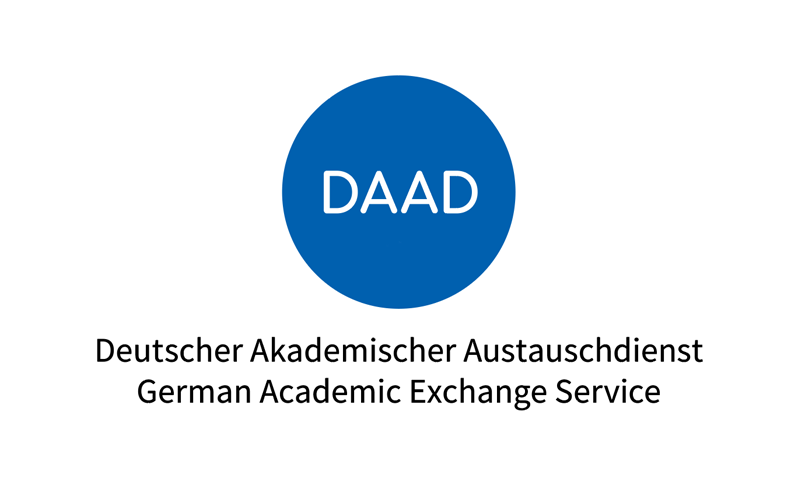Erasmus+
 ThomasVogel/iStock/GettyImages
ThomasVogel/iStock/GettyImages
The Erasmus+ program, funded by the DAAD with funds from the European Union, enables employees of the FernUniversität to gain experience abroad in the form of further education mobility.
Staff Training
Funding is available for FernUniversität staff who are interested in training or obtaining job experience at partner universities or corresponding institutions in program countries. The benefits of Erasmus+ funding include
- Professional knowledge exchange and new perspectives
- Strengthening of your own competences
- Expansion and intensification of networks
- The possibility to take part in a visit that is part of a coordinated program
- Assistance with additional costs incurred abroad
- Special allowances for employees with disabilities
- Help with your preparation (cultural, linguistic, organizational)
What activities are funded?
Who is eligible?
University staff (e.g., contracted teaching staff, research assistants, emeritus professors, lecturers who have a contractual relationship with the FernUniversität as well as staff from administration, library, departments, faculties).
How long is the funding period?
Mobility grants for staff training are usually awarded for stays of one to two weeks (minimum 2 days to maximum 2 months/60 days).
How much funding is available?
Staff members receive an Erasmus+ mobility grant as a unit cost:
- Travel costs: 20–1,300 euros depending on distance to destination (plus a special subsidy for particularly remote cities/regions, where applicable)
- Subsistence costs: 100–180 euros per day depending on the destination country (from the 15th day: 70% of the applied rate)
The payment is made in two installments (80% before the trip, 20% after the trip and once all documents have been submitted).
Zero-grant funding is also possible. This is an option where university staff who meet with all of the Erasmus+ eligibility requirements do not receive a financial grant, but still enjoy all the benefits of the program.
In addition, employees with a disability of at least 50% can apply for a special grant. Please contact the appropriate person (see below).
How can I apply?
- Get the consent of your supervisor.
- Select a host institution in one of the Erasmus+ program countries (member states of the EU, Iceland, Liechtenstein, Norway, Northern Macedonia, Turkey). Erasmus+ agreements for training mobility already exist with the following partner universities:
- University of Economics, Bulgaria
- University of Split, Croatia
- Tallinn University, Estonia
- Université de Lorraine, France
- Université de la Réunion, France
- University of Pécs, Hungary
- Dublin City University, Ireland
- University of Zielona Góra, Poland
- College of Social and Media Culture, Poland
- Babeș-Bolyai University Cluj, Romania
- Universidad Complutense de Madrid, Spain
- Universidad Nacional de Educación a Distancia (UNED), Spain
- Universidad Oberta de Catalunya (OUC), Spain
- Anadolu Üniversitesi, Turkey
- Suleyman Demirel University, Turkey
- Andrássy Gyula Deutschsprachige Universität Budapest, Hungary
In addition, you can carry out research at one of the member universities of the EADTU or take part in one of the staff weeks on offer in the EU’s IMOTION database. The contact person will be happy to advise you. You can also read the testimonials of other employees for inspiration and some useful tips.
3. Submit an informal application consisting of a two-page, English-language letter of motivation (tell us about your area of expertise, about your motivation and in what specific fields you would like to gain more insight at the selected partner university) by e-mail to the contact person (see below) by the deadline.
Next application deadline: 15.01.2023
The decisive factors for awarding funding are the application documents (completeness, coherence, motivation for the stay abroad) and the fulfillment of the formal requirements. Erasmus+ grants are awarded on a first-come, first-served basis and are subject to the available funds. If your application for an Erasmus+ Mobility Grant is approved, you will need to sign a grant agreement and a mobility agreement.
Are there any other conditions associated with the grant?
After your stay abroad, you must
- provide verification of the actual duration of your stay abroad in the form of a written confirmation issued by the host institution
- fill out the EU Commission online report
- submit a short written report (testimonial) about the experience
What else do I need to consider?
An Erasmus+ grant does not include insurance coverage. You must organize sufficient insurance coverage for your stay abroad (European health insurance card, liability insurance, accident insurance, term life insurance, travel insurance incl. repatriation from abroad, if applicable). Coverage is also available through the DAAD.
Subject to change without notice.
Who do I contact?
The staff in the International Office (phone: +49 2331 987-4245, e-mail: international) will be happy to answer your questions.
Information about Erasmus+
Erasmus+ is the European Union’s program for education, youth and sport. It has an estimated budget of €26.2 billion. This is nearly double the funding compared to its predecessor program (2014–2020). The 2021–2027 program places a strong focus on social inclusion, the green and digital transitions, and promoting young people’s participation in democratic life. It supports priorities and activities set out in the European Education Area, Digital Education Action Plan and the European Skills Agenda (Source: https://erasmus-plus.ec.europa.eu/about-erasmus/what-is-erasmus).
In addition to working together to promote innovation and share best practices and support policy reform, Erasmus+ promotes higher education in Europe with the aim of advancing the modernization, internationalization and qualitative improvement of higher education in Europe, strengthening students’ international competences, personal development and employability, enhancing the attractiveness of the EU as a place to study and research, and contributing to the sustainable development of higher education in third countries. The program is also designed to help build bridges between educational sectors and increase collaboration levels between different educational sectors.
In the higher education sector, Erasmus+ provides financial assistance for students, higher education institutions, higher education staff and non-academic partners; it also supports cooperation with schools, companies, adult education institutions and youth associations.
Through Erasmus+, the FernUniversität has funds available to award mobility grants to students (study or internship abroad) and staff (teaching or training/work experience).
FernUniversität in Hagen is an accredited holder of the Erasmus Charter for Higher Education 2021–2027 (ECHE) (PDF 567 KB) awarded by the European Commission and the awarded Erasmus Charta für die Hochschulbildung 2021–2027 (PDF 1 MB, German version) and Erasmus Charter for Higher Education 2021–2027 (PDF 2 MB), respectively, which define the rights and obligations of the institution to participate in the Erasmus+ program. Furthermore, it has issued an Erasmus Policy Statement (EPS) (PDF 66 KB, German only).
The rights and obligations of students participating in the program are set out in the ERASMUS Student Charter (PDF 241 KB). This charter is currently being updated: a new version will be posted here soon.
More information about Erasmus+ is available on the following pages:
- Erasmus+ University Cooperation in Germany (in German)
- Erasmus+ in Germany (in German)
- Erasmus+ Dissemination Platform (example projects)
- European Educational Cooperation
The contact person is Lena Aust in the International Office (phone: +49 2331 987-4245 | email: international).
Liability clause: “This project has been funded with support from the European Commission under the Erasmus+ Program. This publication reflects the views only of the author, and the Commission cannot be held responsible for any use which may be made of the information contained therein.”
More Information
National Agency:
German Academic Exchange Service
National Agency for EU University Cooperation
Kennedyallee 50
53115 Bonn
Phone: +49(0)228/882-8877
Fax: +49(0)228/882-555
E-mail: erasmus@daad.de
Homepage: www.eu.daad.de



